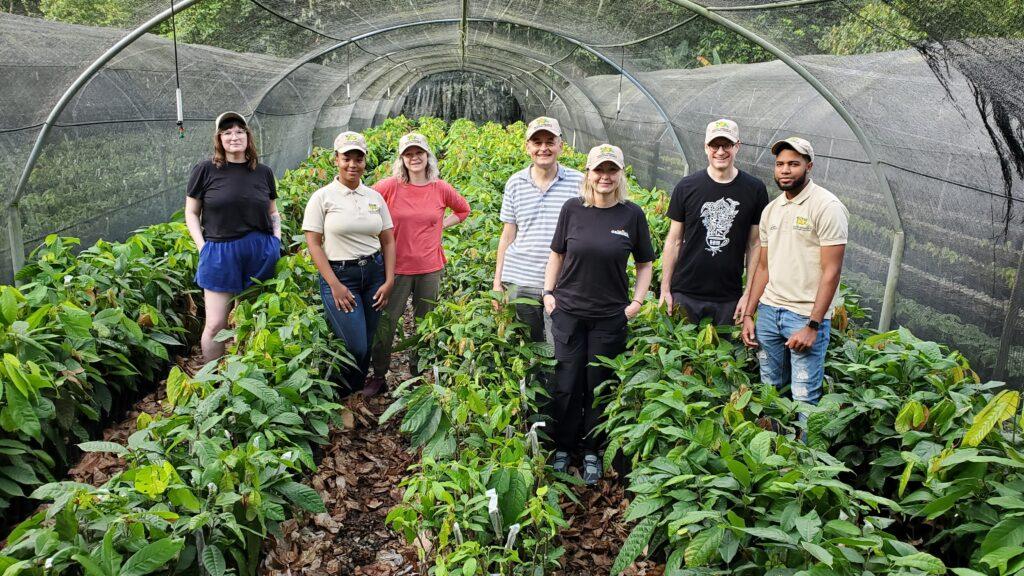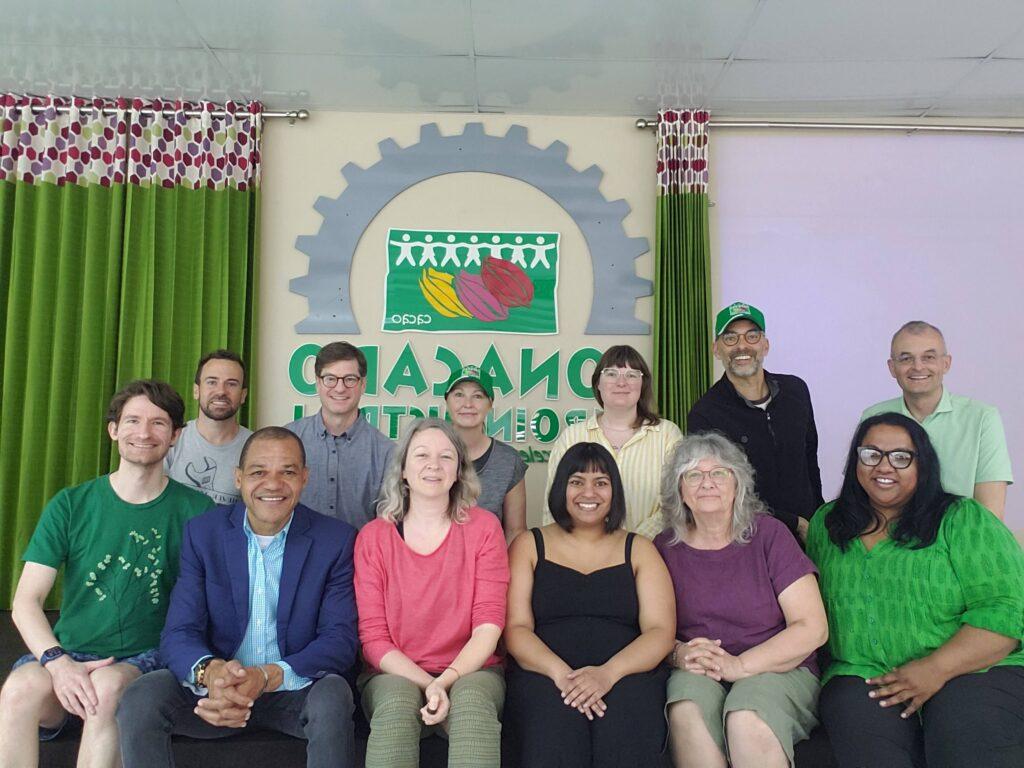Local co-op staff pen essays for chance to visit cocoa farmers
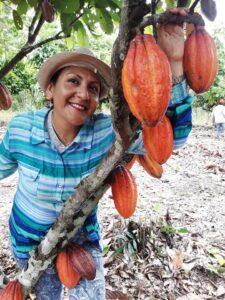
La Siembra Co-operative (Camino) has been able to build a fair trade market for small-scale cocoa and sugar farmers thanks to the support of consumers and socially conscious businesses throughout Canada. One key partner has been the Kootenay Co-op. Nestled in the Selkirk Mountains along the western arm of Kootenay Lake, the co-op grew from a small volunteer buying club into one of Canada’s largest and most successful independent natural food co-operatives.
When buying Camino foods, we want people to know that they were grown by small-scale family farmers who received a fair price, access to credit, and support from a co-operative of their own. That’s why nearly twenty years ago, we started La Siembra Co-operative and pioneered the development and adoption of fair trade standards for cocoa and sugar. It’s why today, we’re organizing an exchange between our customers and shareholders and the cocoa farmers who own Acopagro Co-operative in Juanjuí, Peru.
When we discussed the idea of a trip to Acopagro with Alan Broom, the General Manager of Kootenay Co-op, he hit upon the idea of an essay contest for the staff. To this end, he asked the team: “Why are organic farming practices and fair trade important to you, and why are they important to the cocoa industry?”
The results are great. We’ve included some excerpts below but you can read the full essays at http://kootenay.coop/blog/
Laticia (from the Produce Department at the Kootenay Co-op): “Here is one of the mysteries of our world: farming is among the least well-rewarded, most precarious of occupations. Cultivating food, the most fundamental process for the maintenance of our daily lives, routinely happens under conditions that degrade ecosystems and devalue human and other animal life.
Organic farming practices and fair trade are important to me because they help to redress this situation. They give growers financial authority over their own lives. They support farming communities and help to make farming a viable choice for future generations. Organic farming practices and fair trade are also political movements, and they involve and depend on people at the grassroots – farmers themselves – advocating for their interests, working together to improve the quality of their lives, and creating national and international policy.” Read the entire essay
Alyssa (Outreach): “Fair trade and organic certifications empower eaters with sustainable and ethical food options. They relieve us of the individual responsibility to meet every farmer or research every chocolate bar to uncover whether our food meets a basic standard for social and environmental justice. We trust that certified organic food is clean and that fair trade workers are fairly compensated.” Read the entire essay
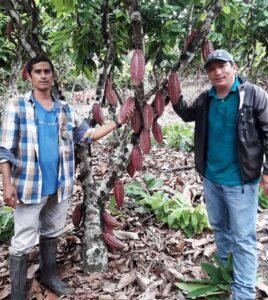
Cassandra U. (Butcher Shop): “In 2016, cocoa sales were projected to reach 98.3 billion, yet cocoa farmers only see between 3.5 and 6.4 percent of the final value of a chocolate bar. That means that out of a $3.00 chocolate bar a farmer would receive 0.10 to 0.21 cents. In the 1980’s farmers were making roughly 0.48 cents (or sixteen percent) per chocolate bar. Adjusted at the rate of inflation from 1985 that would be $1.11 cents per chocolate bar. That means that while the retailers and manufacturers profit sales increase, we are paying farmers less than we did 33 years ago.” Read the entire essay
Rueben (Food Services): “Fair trade. A social movement, where people are able to work together and form symbiotic partnerships on an international scale. Creating a line of hands, carrying food from farm to table. Making sure that indigenous cultures are not taken advantage of; as so often has been the case in the past. A system in place, to provide not just employment to those living in poverty, but an opportunity for communities to thrive.” Read the entire essay
Alexandria B. (Food Services): “The delicious treat that we call chocolate is not as delightful as it tastes. The delicacy that we all enjoy comes at a high price. Many people do not realize the factors that are in play when consuming chocolate. Human rights are abolished and land is mistreated to create a non-essential, but very alluring product. We sometimes see packaging labels reading: “fair trade” or “organic” but the importance of these words is not always understood.” Read the entire essay
-Winner!- Shannon (Human Resources): “The cocoa industry is unfortunately synonymous with child slavery and forced labour. 43% of the world’s cocoa comes from the Ivory Coast region of West Africa. There have been ongoing reports of child slavery on cocoa plantations in this region. In addition to this, hundreds of thousands of West African children between the ages of 9 and 12 work in hazardous conditions on cocoa farms because their parents cannot afford to send them to school. The price paid for conventional, non-fair trade certified cocoa is so low that cocoa farmers live in extreme poverty.
Fair trade ensures not only that there is no forced labour but also that farmers are paid fairly to cover the costs of sustainable production and living – which means they can send their kids to school, afford access to medical services like dental and eye care, and invest back into their businesses.” Read the winning essay
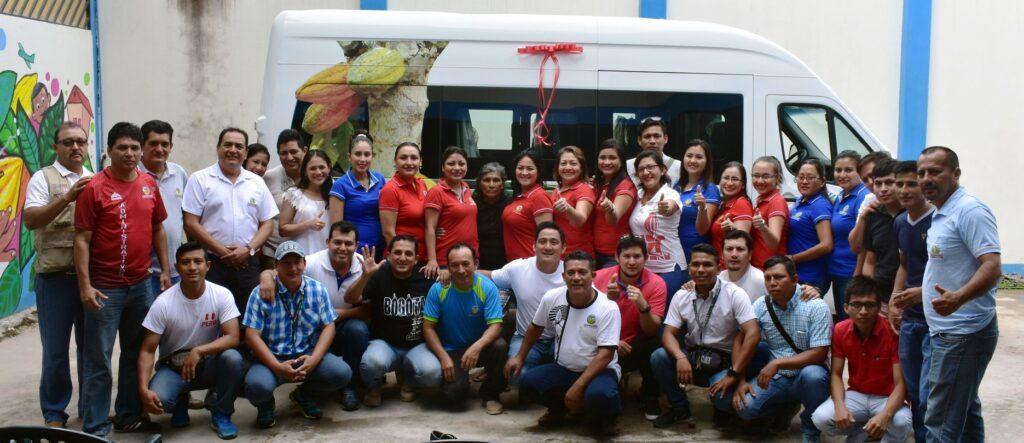
Thanks to everyone who wrote! And, on behalf of the cocoa and sugar farmers with whom we work, a heartfelt thanks to the staff and shoppers of Kootenay Co-op for helping us to build fair trade cooperative supply chains.
Photos from ACOPAGRO – Cooperativa Agraria Cacaotera on Facebook
From the Camino Team, have a fun, safe and delicious summer!
